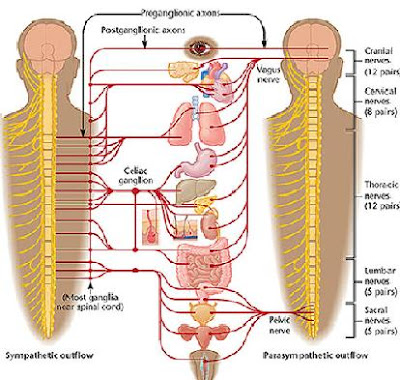The nervous system is divided into three categories: the central nervous system; the peripheral nervous system; and autonomic nervous system. The central nervous system is made up of the brain, the cerebelum, and spinal cord, and is encased in the cranium and spinal column. The peripheral nervous system is composed of the long cable-like nerves that connect sensory nerve cells, to the spinal cord and brain. The autonomi nervous system is the part of the nervous system which regulates involuntary action, as of the liver, pancreas, intestines, heart, and glands.

No comments:
Post a Comment